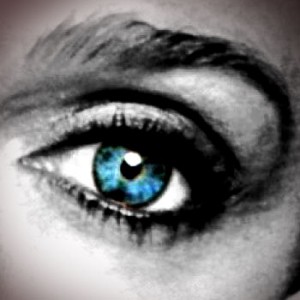 In her last of several memoirs Sweet Judy Blue Eyes (2011), Judy Collins reveals that Stephen Still’s song Suite: Judy Blue Eyes, which he recorded with his band Crosby, Stills and Nash, was about her. Those of us familiar with her career and story already knew this about the brilliant composer and performer. We also already knew about her 23-year struggle with alcoholism. At age 72 she gave up many of the fantasies and illusions associated with her false self, a benefit of the wisdom of aging, at least for some of us.
In her last of several memoirs Sweet Judy Blue Eyes (2011), Judy Collins reveals that Stephen Still’s song Suite: Judy Blue Eyes, which he recorded with his band Crosby, Stills and Nash, was about her. Those of us familiar with her career and story already knew this about the brilliant composer and performer. We also already knew about her 23-year struggle with alcoholism. At age 72 she gave up many of the fantasies and illusions associated with her false self, a benefit of the wisdom of aging, at least for some of us.
She understands the origins of her drinking as a teenager well enough to take responsibility for it without excuses or the unnecessary and often futile attempt to dredge up the details of her psychological (false self) dynamics. “‘I did not drink because of my problems. I had problems because I drank.’ Her stance is a valid one in recovery programs, even if it may frustrate readers, who want her to probe her alcoholism’s psychological roots.” The best therapy for self-destructive behaviors is Self-reliance.
Collins intuitively understood the importance of not choosing the identity of the victim as well as having a sense of the inner power that she could access to make healthy choices. This insight is fundamental to using The Point of Power Practice in choosing to respond to rather than react to life’s challenges. In an earlier book, Sanity and Grace she detailed her survival of the tragedy of her son’s suicide. “Her comments on it are chillingly terse: “Each day I chose not to drink. And I chose not to take my own life.”
Each of us has the opportunity to make those same choices each and every day in our lives embracing the totality of our lives while keeping the focus on the truth. We can choose to transform our suffering into something beautiful. “Both in song and in this book, she has kept the old turmoil at hand, ready to be turned into art.”
Could it be said that Judy Collins in her decision-making was using willpower? Science (the intellect) says that we have very limited powers related to our own free will. Nutritionist Linda Bacon in her book Health at Every Size (2008) “argues that, because of how the brain’s hypothalamus works, it is a “myth” that anyone can will himself to lose weight by maintaining a diet. ‘It’s not your fault!’ she writes. ‘Biology [false-self conditioning] is so powerful it can ‘make’ you break that diet.’”
In their book Willpower: Rediscovering the Greatest Human Strength (2011) by social psychologist Roy F. Baumeister and the New York Times science writer John Tierney conclude that “willpower is limited and depends on a continuous supply of the simple sugar glucose.”
There is, however, an alternative viewpont beyond mainstream science and more in alignment with Simple Reality which affirms the power of intuition and the efficacy of The Point of Power Practice. Greg Walton, assistant professor of psychology at Stanford and Carole Dweck, professor of psychology at Stanford, have confirmed that “willpower can indeed be quite limited—but only if you believe it is.”
In other words, it depends on the aspect of our worldview that we call belief (the other two aspects are attitude and values). “When people believe that willpower is fixed and limited, their willpower is easily depleted. But when people believe that willpower is self-renewing—that when you work hard, you’re energized to work more; that when you’ve resisted one temptation [responding rather than reacting] you can better resist the next one—then people successfully exert more willpower. It turns out that willpower is in your head.” A more profound understanding might be that willpower was part of Judy Collins’ new identity determined by the new story she was choosing for herself.
If we believe we can fundamentally change our day-to-day experience then we will have the power to change our day-to-day experience, the option to choose freedom over self-imprisonment. Eventually science and the intellect will have to transcend the illusion of mind, body and emotions and come to understand that the human spirit is directly linked to the wisdom of the Implicate Order—then the link between worldview, identity and behavior will be intuitively grasped. Such an insight is difficult for those committed to the illusion of the false self. This was an illusion that sweet Judy Blue Eyes was able to transcend.
_____________________________________________________________
References and notes are available for this essay.
Find a much more in-depth discussion in books by Roy Charles Henry:
Who Am I? The Second Great Question Concerning the Nature of Reality
Where Am I? The First Great Question Concerning the Nature of Reality
Simple Reality: The Key to Serenity and Survival


